Moving to Singapore from Dubai in 2021 takes careful planning and attention to details and documentation. We provide everything you need to know before moving from Dubai to Singapore. Start your move today by obtaining up to 6 competitive moving to Singapore quotations FREE.
The Merlion, Marina Bay Sands' view, or the Singapore Changi airport may be Singapore's pride, but these are not the only reasons why foreigners flock to the country to visit, stay for a short while, or move to Singapore for good. There is so much to love in this country.
From its vibrant culture and arts scene, delectable food, to its prominent status as an innovation and technology hub. However, what are the challenges you have to face when relocating to Singapore?
The key with moving to Singapore is planning - a task that requires researching, comparing and contrasting, and preparing. Singapore can be expensive for an ex-pat. The practices, disposition, and way of life of the Singaporeans can also be a reason for culture shock. Education, taxes, and healthcare can be costly, too. But, if you're committed to moving to this city-state, we will help you prepare so you can integrate well into the city.
One thing is sure when you relocate to Singapore - you'll have an opportunity for luxury. The island city-state opens amazing cultural opportunities like world-class golf courses, incredible dining experiences, and luxurious tourist destinations. For those who are looking for greener pastures, this city also offers lucrative career ladders to climb. It's common for those in the corporate world to cultivate relationships through dinners and also build professional knowledge while at it.
Just like moving to any big city, there are advantages and disadvantages of relocating to Singapore. One of the best advantages of moving to Singapore, especially for those who speak Mandarin or English, is that these languages are considered as the official languages in the country. The main business language in the country, along with the language used in public signages, is English. Getting misunderstood or lost is less likely to happen.
If you love to travel to different parts of the world, Singapore will make it easy for you because of Changi Airport, Asia's transport hub. Exploring the continent can be easily done anytime at a relatively low price.
Efficient and modern, Singapore is indeed a comfortable place to start a new life. The city has a great healthcare system, schools, and infrastructure - all of which made Singapore a pleasant place for ex-pats from all walks of life to live in.
The city's taxation system is also very generous in that it can compensate for the high cost of living. Many ex-pats that live here experienced a higher quality of life despite the expensive cost of commodities and utilities.
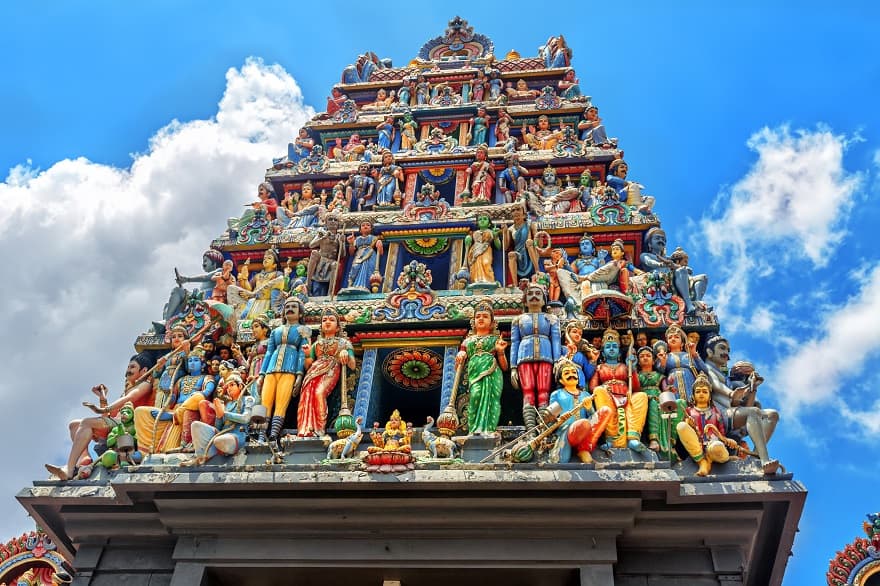
The colorful and intricate Sri Mariamman Temple in Singapore
If you have made up your mind about moving to Singapore, we will help pave the way. Let's learn more about this city as we explore cultural topics like social etiquette, practices, customs, and taboos you should know about before mixing and mingling with the locals.
Familiarise yourself with the visa requirements, banking, tax, healthcare, and educational system on this side of the world. All these are found in this guide. So, cliché as it may sound, but we're inviting you to sit back, relax, and enjoy reading this comprehensive moving guide to Singapore.
Diversity is another reason why Singapore is a well-loved ex-pat destination. Currently, Singapore's population is made up of 74% Chinese, 13% Malay, and 9% Indian. With such a population composition, you can say that both the East and South Asian religions and cultures are well-represented at a national level.
Because of such diversity, the country has a rich cultural landscape that has its own etiquette ex-pats need to learn and navigate.

Meritocracy means those with skills can aim to reach the highest levels in society. Singapore believes in this ideology, and the people here work hard because they believe it's their ticket to be at the top. Because of this practice, they were able to create a hierarchical structure, which calls for politeness and deference for people senior to you.
This politeness is expressed mostly in indirect communication like the tone of your voice, expressions, body language, and how intently you listen to someone. It would be rude to speak loudly or keep eye contact for too long. Refusal doesn't come with a direct no, but an indirect answer.
Singapore is very much a spiritual country that exhibits high religious tolerance. Taoism, Sikhism, Hinduism, Christianity, Buddhism, and Islam are widely represented throughout the country. Meetings of Jehovah's Witnesses are, however, illegal.
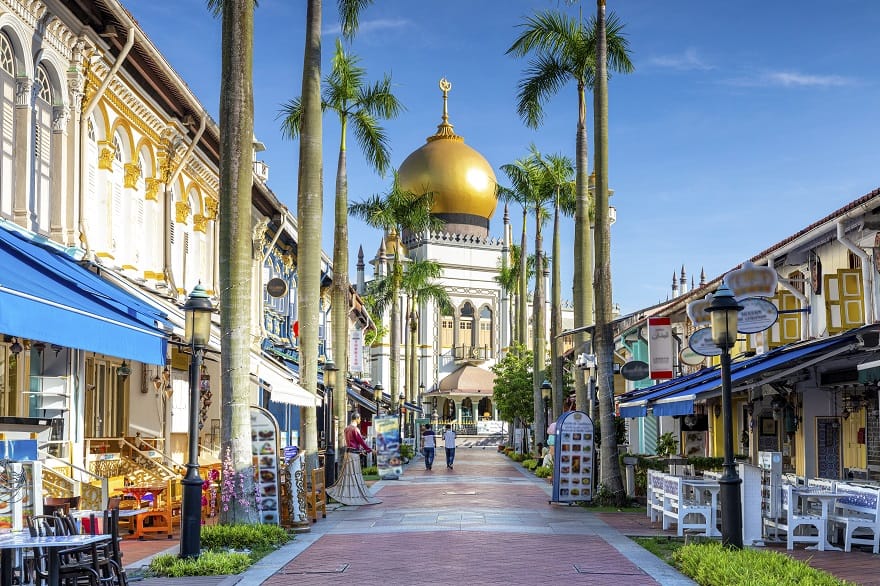
The Masjid Sultan mosque located in Kampong Glam, Singapore
When in Singapore, just like when in any parts of the world, you need to show respect to different religious practices and cultural customs. Muslim Malay women, for instance, may not like to shake another person's hand when they greet them. To avoid awkward situations with these people who have different practices than yours, let them introduce themselves first and just follow their lead about their personal space.
Naming is also a custom that you have to respect. Since people in Singapore came from different ethnic and religious backgrounds, you can't find a one size fits all solution. Again, to keep you from being disrespectful to others, call them by their first name and don't attempt shortening them unless they say so.
Your host's cultural background shall most likely determine all of your dining experiences in Singapore. When choosing the dishes, it's more polite to let your host do it. Malay people, for example, are predominantly Muslim.
You can, therefore, expect halal food to be served. You can't expect alcohol consumption, either. If you're thinking about bringing gifts to their neighbors, think of this as a rule as a reminder. In a Chinese household, on the other hand, alcohol is welcome, and chopsticks are most likely used.
The unfortunate thing for members of the LGBTQ community is that in Singapore, it's forbidden for men to engage in homosexual acts. If found guilty, you can go to jail for two years. This law does not apply to women. The only consolation is that the government stated that they would not be proactive in enforcing the said law.
Same-sex marriage is likewise not acknowledged here and is considered illegal. Despite all these, members of the LGBTQ community should not lose hope as there is an increasing and growing LGBTQ community in the country. The general public's opinion on the issue suggests that they are supporting the said community.
Almost everyone knows that living in Singapore can be very costly. If you're living in the country alone, you might expect to pay around 800-1,000 SGD in rent per month. If you brought your family to Singapore and you share a house good for four people, the rent can go as high as 4,400 SGD.
If you're an ex-pat working on an S Pass in Singapore, you are well aware of the requirement of earning at least 6,000 SGD per month working at a registered company for you to be able to bring your dependents over. This requirement is not whimsical since if you add up the cost per dependent, you bring over, you can easily find your monthly expenses growing exponentially.
And since you are located on a small island city-state, it may be difficult to differentiate the regional cost of living. But then again, you can still identify distinctive differences between the cheapest and most expensive areas to live in.
To make your Singapore home more affordable, you can choose to negotiate your rent by making your lease longer. If you're single, you can also choose to live with roommates to split the rent up.
You can also take advantage of the housing offered by the Housing and Development Board (HDB) since this one is cheaper than private accommodations. The only downside is there are fewer options for common rentals for foreigners.
As you may already know, five regions make up the entire island-city of Singapore, and these are - North, Central, North-East, West, and East. The same regions are further subdivided into 28 different districts through a zip code system.
The day to day cost of living may not vary much, but rental prices can widely change between neighbourhoods. If you live in the outskirts, expect your rent to be cheaper. Specifically, the northern part of the city has countless districts that are affordable. So, if you are on a tight budget, you can explore these areas.
The more expensive neighbourhoods include Holland village, the Central District and Orchard Road. The Woodlands and other northern district regions, on the other hand, are considered less expensive.
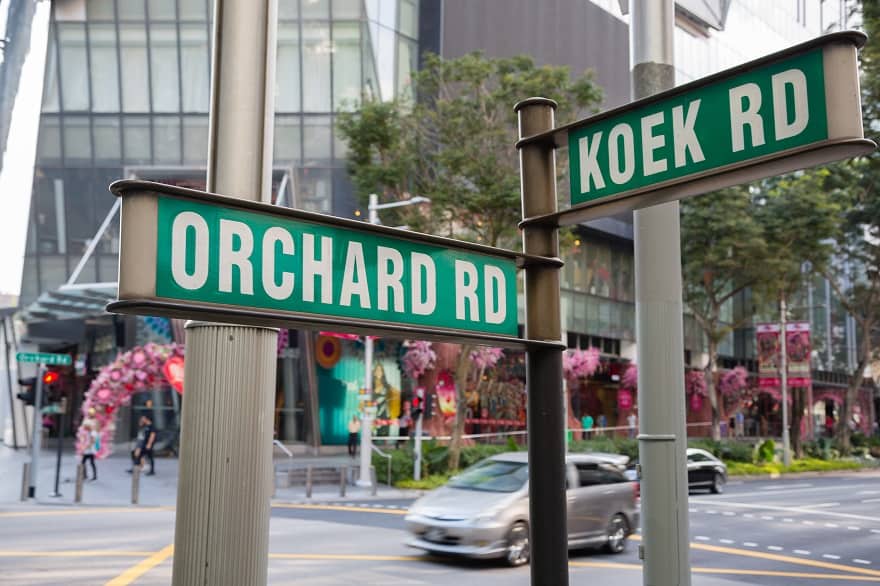
Most ex-pat children are sent to international schools. The reason behind such a decision of their parents is strongly tied to their family's culture or the child's future. Children of American couples might be sent to an international school to earn an American diploma.
This can make it easier for their kids to get work should they decide to go back to their home country. With this educational goal in mind, you have to brace yourself to pay more than 30,000 SGD annually as tuition fees.
When it comes to healthcare, it can't be denied that the country has an excellent system. You have to take note, however, that this is not free. Workers that pay for a Central Provident Fund (CPF) can take advantage of the government-prescribed health insurance and also receive subsidized healthcare. If, however, you don't pay for the CPF, you need to subscribe to private health insurance.
If you are fortunate enough to have a car provided by your employer, then a second vehicle might be considered at best a luxury and at worst an extravagance. For one, the country's transportation system is very reliable. Next, and more importantly, the cost of buying a car can be extremely expensive because of its open market value, fees, and taxes.
The excise duty, registration fees, certificate of entitlement, and other fees can leave you paying tens of thousands of dollars.
This is before you add the cost of the actual vehicle which can be anything from 2-4 times the price you would expect to pay for the same car in Europe or the US.

Moving to a different country means more than just hopping on an aeroplane with your things. This life-changing move requires more preparation. You see, aside from the fact that housing in Singapore is expensive, cheaper rent means living in an unfurnished property. In this case, it would be better if you can bring some of the useful housing items with you to the country.
If you plan to bring your pets over, make sure that your dog is not among the country's banned breed list. The first four generations of Savannah or Bengal cats, along with Akita, Pit Bulls, and large dog breeds, are all banned from entering Singapore.
As far as your household items and personal belongings are concerned, the most viable option is to have them shipped to the country, (as opposed to by air or by road). Once you've arranged the shipment of your items to Singapore, your mover will start to liaise with the Singaporean customs so that upon arrival your goods can clear customs.
In order to legally import your Household Goods and Personal Effects into Singapore, the following is required;
For a more in-depth look at documentation please check the International Association of Movers.
Suppose you plan to relocate to Singapore to work. Before you are allowed to work in the country, you need to secure a work permit or employment visa.
The good news is there are plenty of visas you can choose from. Take note, however, that these passes are just valid for two years and will no way guarantee a permanent resident status.
For you to be eligible to work in Singapore under a work visa, you need to satisfy the following requisites:
One of the work permits you can apply for is the Employment Pass. This applies to foreign executives, managers, and professionals who are set to earn at least 2,600 USD monthly and possess all the necessary qualifications. This pass is valid only for two years.
If you're aiming for a mid-skill position with a monthly salary of 1,700 USD and you meet the qualifications set for the said position, you can aim for the S-Pass. This pass is also valid for two years only.
If you work in the services, process, marine shipyard, manufacturing, construction, and entertainment sectors, there are industry-specific work permits that will be issued specifically to you.
If you're entering the country to invest in a business, the right visa for you would be the EntrePass, a kind of a business visa. This has been created to attract innovations, so workers possessing this pass don't have to be securely employed before they apply. They don't need to earn a specific minimum salary, too.
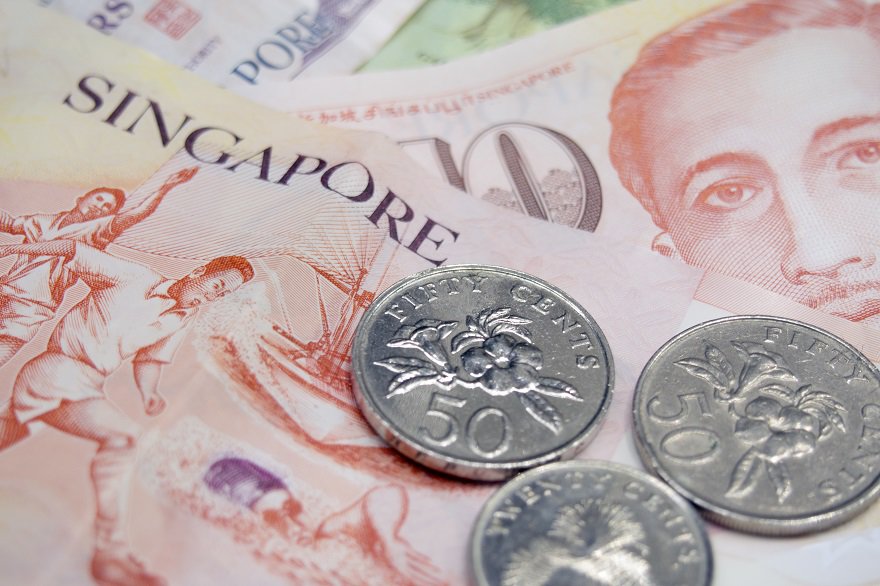
Another important consideration for those moving to Singapore is knowing how you can set up a local bank account and what is the existing tax rate applicable to workers and businesses in the country.
Because of the city's anti-money laundering laws, it's more challenging for non-residents to set up a bank account here. But, if you are over 18 years old and you are gainfully employed in the country, the process becomes easier. All you have to do is submit relevant legal paperwork.
Just a word of caution, though. Not all banks in Singapore allow foreigners to open bank accounts. We've listed the top five banks that are not only open to foreigners but are mostly preferred by ex-pats like you. When choosing a bank in Singapore, location is the key since banking issues require that you visit the bank to resolve it.
If you have already chosen a bank, the next thing you should do is book an appointment or apply for a bank account online. When you're ready to start the application process, make sure to provide the following requirements:
In addition to the requirements above, you may also be required to present the following:
Of course, these requirements will likely vary, and some banks may even require that the passport you present is valid for the next six months. Just make sure that you have all these documents ready so that you don't have to rush back and forth to comply with what you have forgotten.
What are the top five banks that accept foreigners?
Here are the banks that are most preferred by ex-pats in the country:
The city state's tax year runs from the 1st of January until the 31st of December and is called a Year of Assessment or YA. As already mentioned above, the city state's tax system is generous. For foreign workers, this means zero tax for capital gains and low tax rates for low incomes.
The first thing you have to check is whether or not you're already a tax resident in the country. If you entered the country through a work pass that's valid for a year, then you're automatically a tax resident. If you've been staying and working in the country for at least 183 days within the specific YA, then you're a tax resident for that year.
All earnings you have accumulated while working in the country for a tax year are considered as taxable income. Part of the computation is your transport and meal allowances, stock options, housing, commission, and bonuses.
Singapore abides by the progressive income tax system that starts at 0% and goes as high as 22%. The latter rate is only applicable for people earning over 237,000 USD per year. If you have an annual income of less than 22,000 USD, you don't have to pay tax. You only need to file a tax return should you be required by the authorities to do so.
You can use your debit or credit card to pay your bills in Singapore. But aside from this, you can also make use of the iNETS Kiosk that are available in different strategic locations all over the city. You can use these kiosks to pay your bills, top-up your NETS cards, buy tickets, and more.
Since this city-state is located near the equator, you can expect a tropical climate, with high all-year-round humidity, uniform and high temperatures, and abundant rainfall, especially in the afternoons.
Though the climate varies, the variation is not that huge between different months. These variables, however, vary on an hour to hour or day to day basis. This only means that solar heating has a very strong influence on the local climate.
7
31oC/88oF
24oC/75oF
12
84%
34oC/93oF
30oC/86oF
23oC/74oF
Renting a home or an apartment in Singapore is expensive. This may be attributed to the fact that the locals are used to buying apartments. Since most of the younger Singaporeans stay with their parents until they can afford a place of their own, the rental market is left to the foreigners.
An unfurnished apartment with three-rooms can cost 5,840 SGD per month. Those with only one room will most likely cost 1,900 SGD per month.
If you want cheaper rent, you can take advantage of the subsidized apartment rental cost through HBD housing. This option, however, is only open for those who pay for the CPF.
The shortage in the land area explains the excessive prices of Hong Kong properties. Most people, ex-pats included, live in apartment buildings. Suburban residential homes are considered luxurious only the overly wealthy can afford. Then again, the rental cost largely depends on the location of your property. It's highly likely for you to find a less expensive place in New Territories than in HK's Central area.
For ex-pats moving to the island, the Mid-Level is an area preferred by affluent foreign nationals. Those who have kids usually settle in areas such as Lantau Island, Discovery Bay, and in the southern regions of the island. If you choose any of these ex-pat enclaves, expect a monthly rent of 6,400 USD or 50,000 HK$ for a three-room apartment.
Yes, foreigners who are looking to settle in the country for good can invest in an immovable property. Though the price can be through the roof, considering the city-state's smaller space, a good property within the city can save you a lot on rent.
If you decide to resell the property, later on, you can set a more reasonable price for the same. An average property in the city can go as high as 1,385 SGD for every square foot.
The most expensive areas to purchase a property include the West, Tanglin/Orchard, and Southwest and City districts.
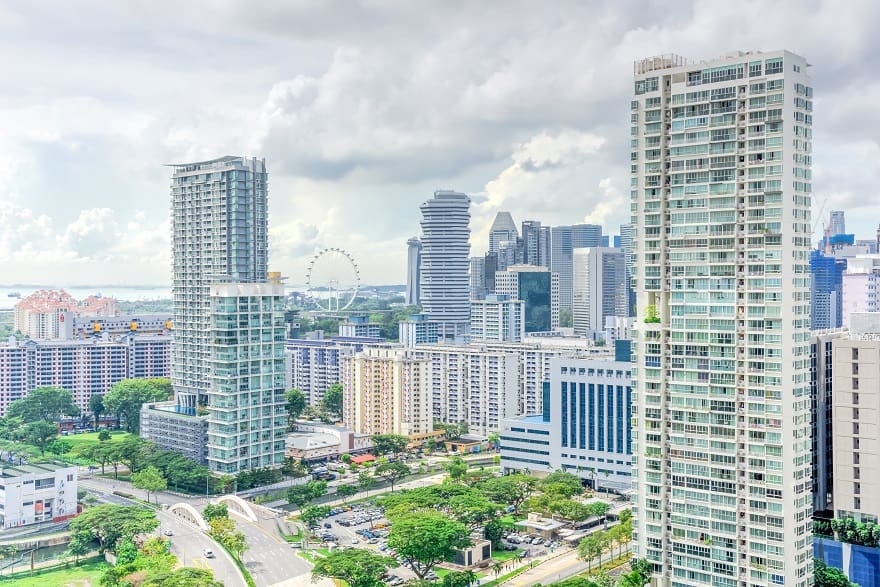
The reason behind the popularity of Singapore's healthcare system is how easily and quickly the same can be accessed. Plus, there are also plenty of English-speaking specialists. All these come with a hefty price tag, however.
The country's healthcare system was only free until the 1970s. After that, the government realized that they are facing an ageing population.
Because of this, both the permanent residents and citizens supported the country's system by paying a monthly contribution that's taken from their wages. This contribution is called the monthly Medisave contributions.
Medisave contributions are equivalent to 9% of the employee's monthly wage. Medisave is deducted directly from the employee's paycheck.
If you get sick and such an illness is not an emergency in nature, you need to see a local doctor first. If you only need health screening, follow-up checks, outpatient care, immunization, and other similar medical needs, it's enough to go to a polyclinic.
If you're a permanent resident who is paying your contribution to the CPF, the government can offer subsidized care for you. If you're not paying into the CPF, then you would need to subscribe to private health insurance.
The advantage of those paying into the CPF is that most of the healthcare costs are covered. Treatments at the public hospital are subsidized by the government, while the cost of surgeries and other expensive procedures shall be covered by Medishield insurance.
A word of caution, though. If you need extensive healthcare procedures, or you might require the expertise of a specialist, the government can only pay for the specialists, drugs, and treatments they approved.
The patient shall pay those outside the government's list. If the cost of hospitalization is already expensive for those contributing to the CPF, imagine how much it will be for non-contributing non-resident ex-pats. Without the subsidy from the government, the cost of public healthcare can be on par with the cost of private healthcare.
The city-state will continue to use a streaming system to provide education to the students. The said system segregated children into pathways or 'streams,' solely based on their academic performance. Citizens of the country are prohibited from attending international schools unless expressly permitted by the MOE.
Currently, the country has three learner streams;
The first stream refers to students preparing to go to college, while the second stream refers to those preparing to attend vocational schools. The last stream is for the students who are projected to excel academically in the university.
Qualifications granted after completion is one of the main differences between a private and public school in Singapore. Private schools set their respective curriculum and qualifications, while public schools in the country offer a specific curriculum with normal-level and GCE O-levels.
Class size is also another difference between the two educational systems. Public institutions have at least 32 students in a class, while private ones only have 24 per class.
Lastly, both educational systems differ largely in cost. While public schools have a fixed monthly rate of 30 SGD, private institutions vary and are more expensive. International schools often charge school fees that range between 30,000 SGD to 50,000 SGD per term.

You don't have to enrol your kids to a private international school for them to enjoy a premium-quality education. Public education is not only the cheaper choice, but it can also help your kids integrate into this new territory.
Singapore's primary and secondary education from public schools are organized and taught in the British format. English the schools' medium of instruction and children are set to gain GCE O and primary school leaving exam certifications after finishing these levels.
If you want to enrol your kids in a local public primary school, all you have to do is to sign up in one of the three registration phases within the same year that your kid turns six years old. If you're a permanent resident, you can sign up for the first two phases. International students, on the other hand, can only register under the last phase.
Moving to a different country can be daunting, and if you don’t get on top of things it can become quite stressful. Moving to Singapore presents its own set of unique challenges, but if you follow the guidelines we have provided, we feel certain you can experience a smooth relocation to Singapore.
You can start the ball rolling by completing our simple form, allowing international movers to get started on your quotation, today!
Note: This document is provided as a guide for people moving to Singapore and for information purposes only. Customs regulations can and do change at any time, usually without notice. Your mover will provide you with more information.
